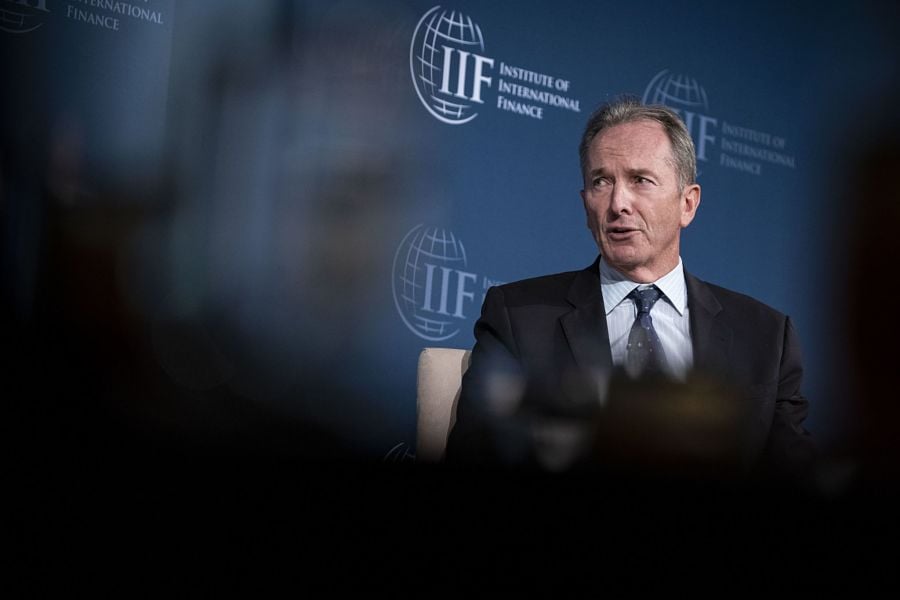

Morgan Stanley CEO James Gorman is so happy about the acquisition of ETrade Financial Corp., which is expected to close in the fourth quarter of this year, that he plans on sticking with the online trading firm's name and brand.
When large financial institutions like Morgan Stanley buy another company, the name of the acquired company is often erased from history, as if it never existed at all. That won't be the case when Morgan Stanley, which said in February it was buying ETrade for $13 billion in stock, ultimately absorbs the company.
"I couldn’t be happier about this deal," Gorman said Tuesday during an online presentation at Morgan Stanley's annual U.S. financial conference. "It’s one thing during negotiations. There’s posturing, and there’s stuff going on.
"But now that we’re dealing with folks who are going to be our colleagues and their team has been world-class," he said. "I’m really impressed with their management team, and I’m really impressed with their technology, with their digital banking capability."
"One thing we’ve learned through COVID is that people are using digital more, not less," Gorman said. "That’s why Amazon and Google and all these companies have exploded. It’s the same in our business. So having world-class digital capability, if ever we needed it, we need it now.
"Add in not having to build it but buying it and putting it on our system," he said. "I’m thrilled about it."
The ETrade deal expands Morgan Stanley's online and so-called self-directed platform for the less than ultra rich. The firm has more than 15,000 financial advisers.
Gorman is pleased enough that he foresees hanging onto the ETrade brand to some degree. "We will keep the front end, we will keep the brand, ETrade powered by Morgan Stanley, or something like that," he said. "The brand has real value. It’s important to their client base."
The ETrade acquisition strengthens Morgan Stanley, he said. Overall, the deal makes Morgan Stanley larger, it diversifies the company, it gives the firm greater digital banking capabilities, and it appeals to a younger demographic that wants to do brokerage and banking online, Gorman said.
“This gives us a technology organization that infuses ours with innovation,” he said.

While industry statistics pointing to a succession crisis can cause alarm, advisor-owners should be free to consider a middle path between staying solo and catching the surging wave of M&A.

New joint research by T. Rowe Price, MIT, and Stanford University finds more diverse asset allocations among older participants.

With its asset pipeline bursting past $13 billion, Farther is looking to build more momentum with three new managing directors.

A Department of Labor proposal to scrap a regulatory provision under ERISA could create uncertainty for fiduciaries, the trade association argues.

"We continue to feel confident about our ability to capture 90%," LPL CEO Rich Steinmeier told analysts during the firm's 2nd quarter earnings call.
Orion's Tom Wilson on delivering coordinated, high-touch service in a world where returns alone no longer set you apart.
Barely a decade old, registered index-linked annuities have quickly surged in popularity, thanks to their unique blend of protection and growth potential—an appealing option for investors looking to chart a steadier course through today's choppy market waters, says Myles Lambert, Brighthouse Financial.
